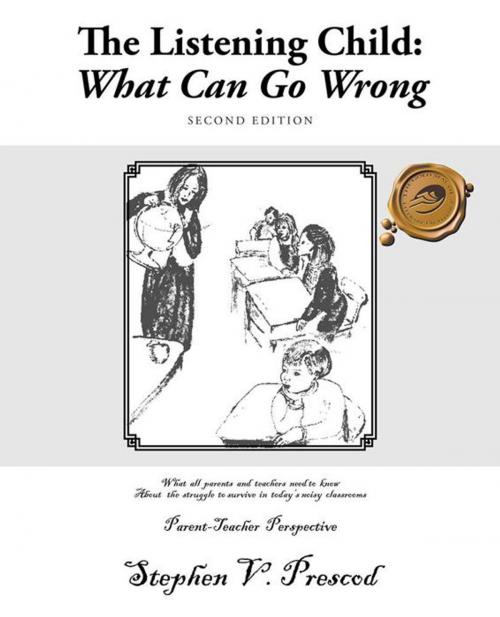The Listening Child: What Can Go Wrong
What All Parents and Teachers Need to Know About the Struggle to Survive in Today’S Noisy Classrooms
Nonfiction, Health & Well Being, Health, Ailments & Diseases, Hearing, Reference & Language, Education & Teaching, Special Education, Administration| Author: | Stephen V. Prescod | ISBN: | 9781466951648 |
| Publisher: | Trafford Publishing | Publication: | September 18, 2012 |
| Imprint: | Trafford Publishing | Language: | English |
| Author: | Stephen V. Prescod |
| ISBN: | 9781466951648 |
| Publisher: | Trafford Publishing |
| Publication: | September 18, 2012 |
| Imprint: | Trafford Publishing |
| Language: | English |
The struggle to survive in todays noisy classrooms is real. The childs poor performance often leads authorities to apply undue pressure on him, frequently concluding that he is lazy or of low intelligence, which is certainly not the case. The childs brain is a complex storage and retrieval organ, which mandates that information be properly received, stored, and organized in order to be retrieved for proper use. The child who processes information normally in the classroom is constantly assigning meaning to what is being said in the classroom. The brain is capable of performing these functions in millisecond as long as there is a built-in attention filtering device that assists him in processing relevant information and filtering out or eliminating that which is not. The child who has processing difficulties is not equipped with the excellent filtering capabilities of the normal processing child. His primary difficulty is that of learning through a defective auditory (hearing) channel. Unlike the normal listener, he cannot make maximum use of what he hears for academic purposes even though his hearing is normal. Something seems to intercept the information between what he hears with the normal ear and its decoding by the brain. He allows in both relevant and irrelevant information all at once. Because of poor storage and retrieval capabilities as well, this results in inadequate receptive expressive and integrative functioning on the part of the child. You may often hear him say to the teacher, I forget. What did you say? Would you repeat that? I dont understand The Listening Child explains in laymans terms what teaches and what parents need to know out this childs difficulty.
The struggle to survive in todays noisy classrooms is real. The childs poor performance often leads authorities to apply undue pressure on him, frequently concluding that he is lazy or of low intelligence, which is certainly not the case. The childs brain is a complex storage and retrieval organ, which mandates that information be properly received, stored, and organized in order to be retrieved for proper use. The child who processes information normally in the classroom is constantly assigning meaning to what is being said in the classroom. The brain is capable of performing these functions in millisecond as long as there is a built-in attention filtering device that assists him in processing relevant information and filtering out or eliminating that which is not. The child who has processing difficulties is not equipped with the excellent filtering capabilities of the normal processing child. His primary difficulty is that of learning through a defective auditory (hearing) channel. Unlike the normal listener, he cannot make maximum use of what he hears for academic purposes even though his hearing is normal. Something seems to intercept the information between what he hears with the normal ear and its decoding by the brain. He allows in both relevant and irrelevant information all at once. Because of poor storage and retrieval capabilities as well, this results in inadequate receptive expressive and integrative functioning on the part of the child. You may often hear him say to the teacher, I forget. What did you say? Would you repeat that? I dont understand The Listening Child explains in laymans terms what teaches and what parents need to know out this childs difficulty.















